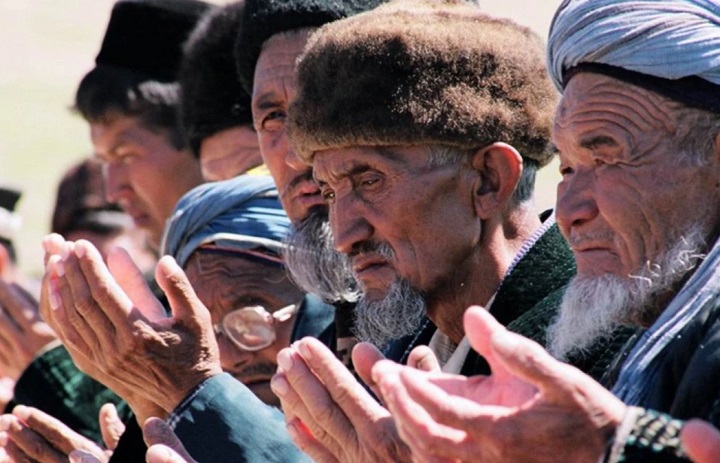People’s Artist of Uzbekistan Yodgor Sadiev criticized the wearing of a beard by Uzbek youth, calling it a devilish manifestation. The proper video was posted on the Internet on June 17.
The artist believes that such a beard, which is increasingly worn by young people in Uzbekistan, is called ‘a Shaitan’s beard’. Such a statement caused a storm of indignation and criticism against Sadiev. Some Islamic portals called the artist’s words an insult to Islam and social media users urged him not to interfere in what he does not know. For example, one of the Facebook users, Murodbek Fazylov, commented on this video as follows: “An artist who yesterday wore women’s satin shirts has no right to talk about religion. When will the Uzbeks find peace if all sorts of humorists talk about a beard and a scarf?”. Another user of the social network, Kamaliddin Bilalov, noted the following: “Soviet upbringing is expressed in his physiognomy. He must urgently make tawba. I wonder what this person says about religion, who does not know the difference between Sunnah and Wajib”.
Comment:
It is noteworthy that these words of Yodgor Sadiev were published on the website of the administration of the Uychinsky district of the Namangan region of Uzbekistan, which once again emphasized the position of the authorities regarding the growing influence of Islam among Uzbek society, especially among youth. Uzbek youth are drawn to religion despite the fact that for 30 years the country has pursued a cruel policy of persecuting people for any manifestation of Islam. Indeed, despite the fact that the Mirziyoyev regime declares its commitment to reforms, the anti-Islamic character of its internal policy remains in many respects continuing the traditions of the Karimov regime.
Recall that according to media reports in June of this year in the city of Angren in the Tashkent region, dozens of men were summoned to police, where their beards were forcibly shaved off. Similar precedents could be observed in the last 10 years in Tajikistan, where the Rahmon regime consistently prohibits the wearing of the hijab and beard, referring them to signs of extremism and terrorism.
Of course, such an attitude towards Islam and its signs from the authorities of the countries of the region creates a certain system in which the only way to advance the career ladder and gain favor from the authorities is joining the fight against religion. Exactly for this reason, many representatives of the creative and scientific intelligentsia in Central Asia allow themselves to make anti-Islamic statements without any consequences. However, each time such statements cause a storm of indignation from the society, and this is a good sign because this indicates the strong connection of the peoples of the region with Islam. So, sooner or later, people will cease to tolerate such a policy towards themselves and their religion, expelling these secular colonial regimes and establishing the Sharia of Allah on their lands. Allah Almighty said:
[وَزُلْزِلُوا حَتَّى يَقُولَ الرَّسُولُ وَالَّذِينَ آمَنُوا مَعَهُ مَتَى نَصْرُ اللَّهِ أَلَا إِنَّ نَصْرَ اللَّهِ قَرِيبٌ]
“They were afflicted by hardship and suffering, and were so shaken down that the prophet, and those who believed with him, started saying: “When will come the help of Allah?”. Behold, the help of Allah is near” [2:214].
Muhammad Mansour

